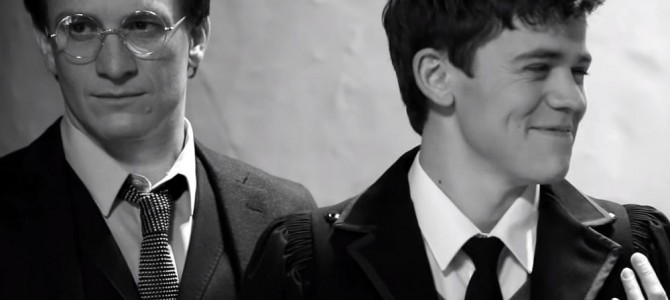
Saturday night, I will attend my fifth midnight release for a Harry Potter book. This one will be a little different. For one, I’ll be in my pajamas at home, getting ready to download J.K. Rowling’s play “Harry Potter and the Cursed Child,” a look at the famous wizard as he works at the Ministry of Magic and raises his three children.
Parenting, particularly fatherhood, will be a main theme.
“The starting point was: how does a 40-year-old man, who’s also an orphan and a wizard and one of the world’s greatest heroes, how does he do the most basic thing of being a dad when he’s had no parenting experience and actually had quite a lot of abuse,” the play’s producer Sonia Friedman said.
Parenting has previously been a rich topic for Rowling, who explored motherhood in-depth in the first seven Harry Potter books. In her previous works, Rowling has argued that a mother’s love for her children is an immensely powerful force—more powerful than even magic.
The Magic of a Mother’s Love
Take Lily Potter, Harry’s mother. When the all-powerful Lord Voldemort attempted to kill Harry, Lily sacrificed herself. She didn’t need to die, but she put her son’s life before her own. Her love, and willingness to die for her child, kept Harry alive.
Seventeen years later, during Harry’s final battle with Voldemort, another mother’s actions save his life once again. Narcissa Malfoy, a longtime follower of Voldemort, lied to her leader and told him Harry was dead, even though Voldemort’s killing curse had failed again.
Rowling explains why: “Still feigning death on the ground, [Harry] understood. Narcissa knew that the only way she would be permitted to enter Hogwarts, and find her son, was as part of conquering army. She no longer cared whether Voldemort won.” Narcissa’s only concern was her son, so like Lily Potter, she stood up to Voldemort. Rowling has referred to Narcissa’s action as a “conscious echo” of Lily’s sacrifice.
“At the start of the story Lily dies to keep her son alive. At the end of the story, Harry lies, pretending to be dead on the ground and it’s a mother who saves him again because she’s trying to get to her own son. So that was my, you know, that was closing a circle. He was saved there by Lily and he’s saved there by Narcissa,” she said.
The final battle features one last powerful act of motherly love. Molly Weasley, an “exemplar of maternal love,” kills Bellatrix Lestrange, a Voldemort follower, widely considered the most powerful witch of her age. Molly takes on Bellatrix after seeing Bellatrix murder her son and then attack her daughter. As Molly kills Bellatrix, she screams, “You – will – never – touch – our – children – again.”
Until this moment, Molly had been a woman who cared for her children and husband, cooked far too much food for holidays, and knitted sweaters. Yet her love for her family allowed her to defeat Bellatrix.
These three women with dramatically different backgrounds are all able to perform extremely powerful magic because of their love for their children. While discussing Lily’s sacrifice, Albus Dumbledore offers what might be Rowling’s thesis on motherhood.
Dumbledore explains to Harry, “Your mother died to save you. If there is one thing Voldemort cannot understand, it is love. He didn’t realize that love as powerful as your mother’s for you leaves its own mark. Not a scar, no visible sign… to have been loved so deeply, even though the person who loved us is gone, will give us some protection forever.” For Rowling, a mother’s love is so strong it can offer protection, even from Voldemort.
Less Experience with Loving Fathers
In contrast, the first seven Harry Potter books don’t include such a strong, striking message about fatherhood. Remus Lupin, who dies in the final battle just months after his first son is born, says, “[I’m] sorry I will never know him – but he will know why I died and I hope he will understand. I was trying to make a world in which he could live a happier life.” Arthur Weasley, Molly’s husband, takes Harry in and treats him as a son. Harry’s godfather dies just two years after they meet.
Rowling’s personal life offers some hints as to why she might have chosen to emphasize motherhood. Rowling was famously a poor, single mother when she started writing the first Harry Potter novel. Her own mother died six months into the writing process, which she has said shifted the nature of the books. The novels then could be read simultaneously as a tribute to her mother and a promise to her children that she will always protect them.
Rowling also had a difficult relationship with her father, saying in one 2006 interview she was “very frightened” of him. Her relationship with him perhaps points to why her books don’t feature as many compelling father figures as she has mother figures.
Rowling now seems to be happily married to Neil Michael Murray, and the couple has had two more children. Maybe now, after seeing Murray as a father, the time is right for Rowling to argue in “Cursed Child” that there is something magical about fatherhood as well.









